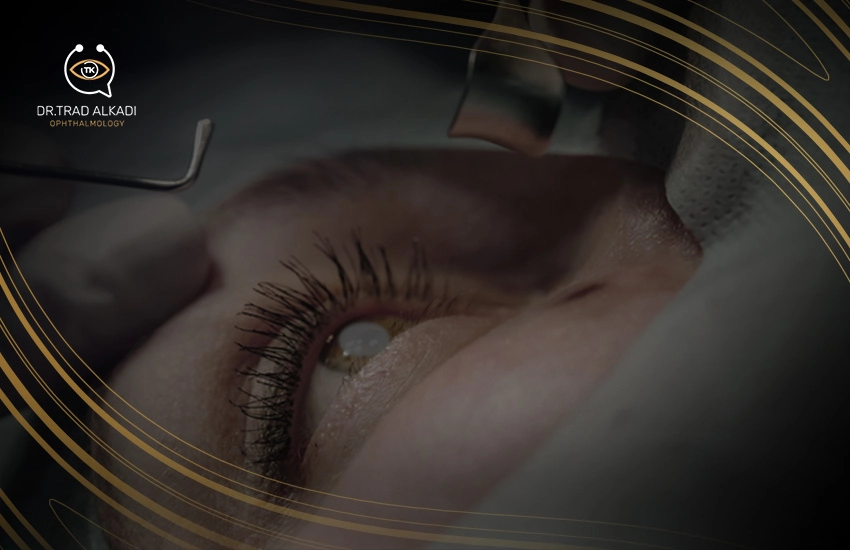Cataracts can make the world appear blurred, making everyday activities more difficult. If you’re experiencing cloudy vision, difficulty reading, or trouble seeing at night, cataract surgery could be the answer. At Dr Trad El-Qadi’s clinic, we specialise in advanced cataract treatments aimed at restoring your vision safely and effectively.
What Is Cataract?
Cataracts develop when the eye’s natural lens becomes cloudy, resulting in blurred or dim vision. This condition typically progresses gradually and is most commonly linked to aging. However, factors such as diabetes, prolonged UV exposure, and smoking can also raise the risk.
When is Eye Cataract Operation Needed?
Cataract surgery is usually advised when cataracts start affecting everyday tasks such as reading, driving, or recognising faces. This procedure is among the most frequently performed surgeries worldwide and boasts a high success rate.The most advanced method, phacoemulsification cataract surgery, uses ultrasound waves to fragment the cloudy lens, which is then replaced with a clear artificial lens.
Recognizing Cataract Symptoms
If you are experiencing any of the following symptoms, you may need to consider cataract surgery:
- Blurred or cloudy vision.
- Increased sensitivity to light and glare.
- Trouble seeing in low-light conditions.
- Fading or yellowing of colours.
- Double vision in one eye.
If you are experiencing these symptoms, it is important to consult an ophthalmologist, such as Dr Trad El-Qadi, to determine whether cataract surgery is required.
What to Expect During an Eye Cataract Operation?
If you are considering cataract surgery, here is what you can expect:
Pre-Surgical Preparations:
- Your ophthalmologist will conduct a comprehensive eye examination to measure your eye and determine the most suitable artificial lens.
- You will receive instructions on how to prepare, including avoiding food and drink for a few hours prior to the procedure.
The Procedure:
- The procedure is brief, typically lasting between 15 and 30 minutes per eye.
- You will remain awake but receive local anaesthesia to numb the eye, ensuring you experience no pain.
- Dr Trad El-Qadi utilises the latest technology to perform cataract surgery, ensuring precision and safety.
Post-Surgical Care:
- You will be provided with a protective shield to wear over your eye and prescribed medicated eye drops to prevent infection and reduce inflammation.
Restrictions After Cataract Surgery
After your cataract surgery, it is important to follow your doctor’s instructions to ensure a smooth recovery. Common post-surgical restrictions include:
- Avoid heavy lifting or strenuous activities for at least a week.
- Do not rub or press on your eye.
- Avoid swimming pools and hot tubs to reduce the risk of infection.
- Wear sunglasses to protect your eyes from bright light.
These precautions help to minimise the risk of complications and support a faster recovery.
What are the Disadvantages of Cataract Surgery?
Cataract surgery is one of the safest medical procedures; however, like any operation, it carries some risks, including:
- Temporary dryness or discomfort in the eye.
- Heightened sensitivity to light.
- Infection or inflammation, though rare.
- A secondary cataract (posterior capsule opacification), which can be easily treated with a quick laser procedure.
- eye pain after cataract surgery.
How many days rest is needed after cataract surgery?
While Cataract surgery recovery time varies from person to person, here is a general timeline:
- First 24–48 Hours:You may experience mild discomfort, blurred vision, or sensitivity to light. Resting during this period is essential.
- First Week: Most patients notice a significant improvement in their vision. However, it is important to avoid strenuous activities and follow your doctor’s advice.
- First Month: Your vision will continue to stabilise, and any minor side effects, such as dry eyes or mild discomfort, should subside.
- Full Recovery: Most patients achieve their final vision within four to six weeks, though some may take longer.
Take the First Step Towards Clearer Vision
Cataracts should not prevent you from living life to the fullest. With eye cataract operation, you can regain clear vision and confidence. Book a consultation with Dr Trad El-Qadi today to explore the best treatment options.
Also you can read more about PRK surgery

